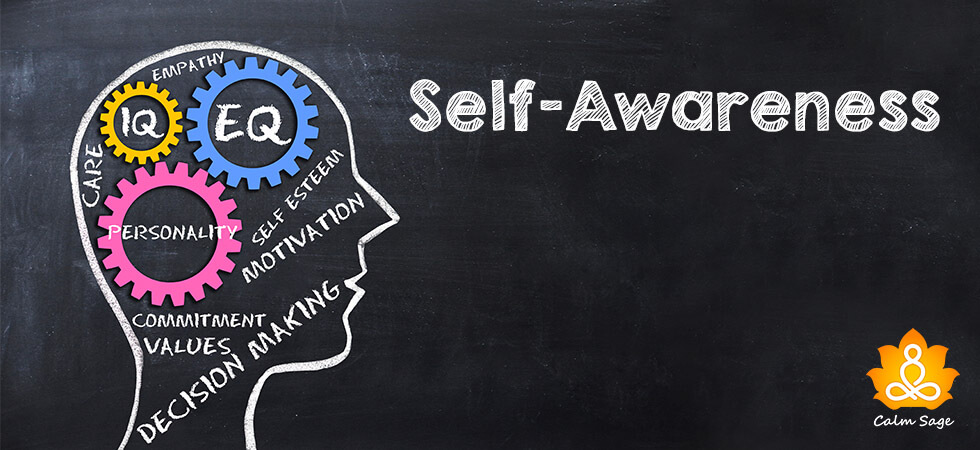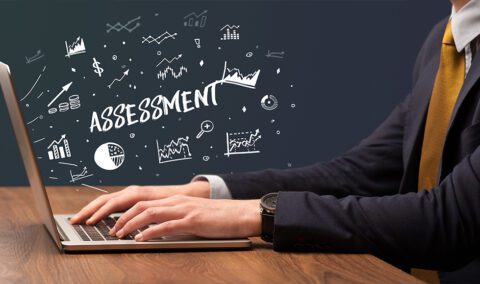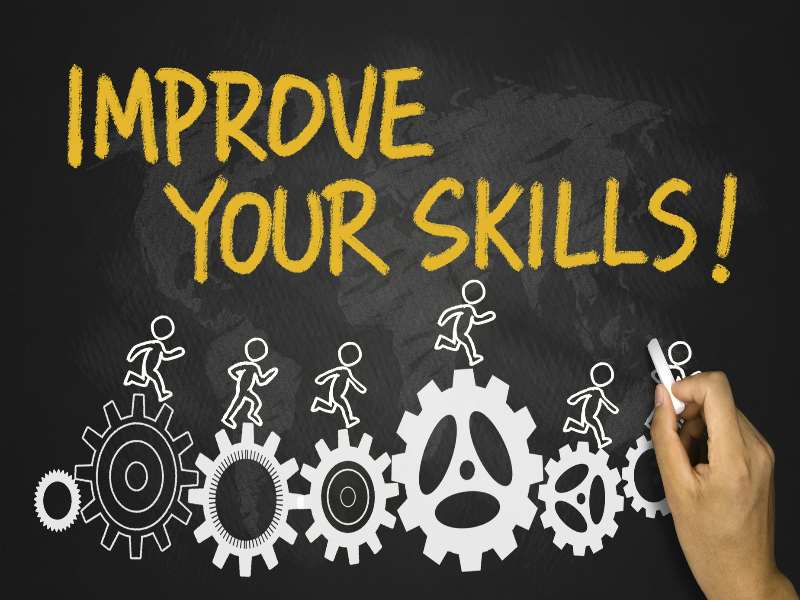The Power of Self-Awareness: Recognizing Your Skills
Self-awareness is the foundation of identifying and developing one’s skills. By understanding your strengths and weaknesses, you can leverage your abilities to achieve personal and professional growth. Recognizing your skills involves a deep understanding of your knowledge, expertise, and personal interests. This process allows you to align your skills with your goals and aspirations, leading to a more fulfilling and successful life.
Becoming self-aware requires introspection and reflection. Start by asking yourself what you are good at and what you enjoy doing. Consider your past experiences, both personal and professional, and identify the skills you have acquired along the way. Reflect on your achievements, challenges, and areas for improvement. By doing so, you can gain a better understanding of your skills and how they can be applied in various contexts.
Moreover, self-awareness involves acknowledging your weaknesses and areas for improvement. Recognizing your limitations is not a sign of weakness, but rather an opportunity for growth. By identifying areas where you can improve, you can create a plan to develop your skills and overcome your challenges. This process can lead to increased confidence, resilience, and adaptability, all of which are essential for long-term success.
In conclusion, self-awareness is a critical component of identifying and developing your skills. By understanding your strengths and weaknesses, you can leverage your abilities to achieve personal and professional growth. Reflect on your past experiences, acknowledge your limitations, and create a plan to develop your skills. By doing so, you can unleash your potential and maximize your success.

Harnessing the Power of Assessments: Tools to Identify Your Skills
Assessments are valuable tools that can help individuals identify their skills and strengths. By taking various assessments, you can gain a better understanding of your abilities and interests, which can inform your personal and professional development. In this section, we will discuss several types of assessments that can help you identify and develop your skills.
Personality Tests
Personality tests are a popular type of assessment that can provide insights into your personality traits, behaviors, and motivations. By taking a personality test, you can learn more about your strengths, weaknesses, and communication style. This information can be useful in identifying careers that align with your personality type and in improving your relationships with others.
Career Aptitude Tests
Career aptitude tests are designed to assess your skills and interests in various occupations. By taking a career aptitude test, you can identify careers that match your abilities and interests, which can help you make informed decisions about your education and career path.
Self-Reflection Exercises
Self-reflection exercises are a simple yet effective way to identify your skills and strengths. By taking the time to reflect on your experiences, achievements, and challenges, you can gain a better understanding of your abilities and areas for improvement. Self-reflection exercises can include journaling, meditation, or simply taking a walk and reflecting on your thoughts.
360-Degree Feedback
360-degree feedback is a type of assessment that involves gathering feedback from multiple sources, including supervisors, peers, and subordinates. By receiving feedback from multiple perspectives, you can gain a more well-rounded understanding of your strengths and weaknesses. This type of assessment can be particularly useful in a professional setting, as it can provide insights into your communication style, leadership skills, and teamwork abilities.
Skills Assessments
Skills assessments are designed to evaluate your proficiency in specific skills, such as writing, math, or computer programming. By taking a skills assessment, you can identify areas where you need improvement and create a plan to develop your skills.
In conclusion, assessments are powerful tools that can help you identify your skills and strengths. By taking various assessments, such as personality tests, career aptitude tests, self-reflection exercises, 360-degree feedback, and skills assessments, you can gain a better understanding of your abilities and interests. This information can inform your personal and professional development and help you achieve your goals.

Categorizing Your Skills: Breaking Down Your Abilities
Once you have identified your skills through various assessment tools and techniques, it is important to categorize and prioritize them. This will help you focus on developing the skills that are most relevant to your personal and professional goals. In this section, we will discuss three categories of skills: transferable skills, job-specific skills, and personal interests.
Transferable Skills
Transferable skills are abilities that can be applied to a variety of jobs and industries. These skills include communication, problem-solving, leadership, and teamwork. By developing transferable skills, you can increase your versatility and adaptability in the job market. For example, if you have strong communication skills, you can apply for jobs in fields such as marketing, public relations, or customer service.
Job-Specific Skills
Job-specific skills are abilities that are required for a particular job or industry. These skills include technical knowledge, certifications, and licenses. By developing job-specific skills, you can increase your competitiveness in a particular field. For example, if you want to become a software developer, you may need to learn programming languages such as Python or Java.
Personal Interests
Personal interests are activities or hobbies that you enjoy doing in your free time. By pursuing your personal interests, you can develop skills that may be useful in your personal and professional life. For example, if you enjoy photography, you can develop skills in creativity, composition, and storytelling. These skills can be applied to jobs in fields such as marketing, graphic design, or journalism.
In conclusion, categorizing your skills into transferable skills, job-specific skills, and personal interests can help you prioritize your development efforts. By focusing on developing the skills that are most relevant to your goals, you can increase your competitiveness in the job market and enhance your personal and professional growth. Remember to regularly reassess your skills and adjust your development plan as needed to stay aligned with your goals and the changing job market.

Developing Your Skills: Creating a Personalized Growth Plan
Once you have identified your skills through various assessment tools and techniques, it is important to create a personalized growth plan to develop them further. A growth plan is a roadmap that outlines your specific, measurable, achievable, relevant, and time-bound (SMART) goals for skill development. By creating a growth plan, you can stay focused and motivated, track your progress, and make adjustments as needed. In this section, we will discuss the significance of creating a personalized growth plan and provide tips on how to get started.
Setting SMART Goals
SMART goals are specific, measurable, achievable, relevant, and time-bound. By setting SMART goals, you can increase your chances of success and stay motivated. For example, instead of setting a vague goal such as “I want to improve my communication skills,” set a SMART goal such as “I want to improve my public speaking skills by delivering a presentation at a conference in the next six months.”
Tracking Progress
Tracking progress is essential to stay motivated and accountable. By tracking your progress, you can see how far you have come and identify areas for improvement. You can track your progress using various methods, such as keeping a journal, using a spreadsheet, or using a goal-tracking app. Choose a method that works best for you and update it regularly.
Making Adjustments
As you work on your growth plan, you may encounter unexpected challenges or opportunities. It is important to be flexible and make adjustments as needed. For example, if you find that a particular learning method is not working for you, try a different one. If you encounter a new opportunity that aligns with your goals, consider taking it. By being flexible and adaptable, you can stay on track and make the most of your learning experience.
Staying Motivated
Staying motivated can be challenging, especially when you encounter setbacks or obstacles. To stay motivated, remind yourself of your goals and the benefits of skill development. Celebrate your successes, no matter how small, and seek support from friends, family, or mentors. By staying motivated, you can overcome challenges and stay on track towards achieving your goals.
In conclusion, creating a personalized growth plan is essential to develop your skills and achieve your personal and professional goals. By setting SMART goals, tracking progress, making adjustments, and staying motivated, you can stay focused and motivated on your learning journey. Remember to regularly reassess your growth plan and adjust it as needed to stay aligned with your goals and the changing job market.

Leveraging Learning Opportunities: Formal and Informal Ways to Identify and Develop Your Skills
Identifying and developing your skills is an ongoing process that requires continuous learning and development. There are various formal and informal learning opportunities available to help you acquire new skills and enhance existing ones. In this section, we will discuss different formal and informal learning opportunities that can help you identify and develop your skills.
Formal Learning Opportunities
Formal learning opportunities refer to structured learning programs that follow a curriculum and are often provided by educational institutions or organizations. Here are some examples of formal learning opportunities:
- Degree programs: Degree programs, such as bachelor’s or master’s degrees, provide in-depth knowledge and training in a specific field.
- Certification programs: Certification programs, such as project management or IT certifications, provide specialized training and credentials in a particular area.
- Workshops and seminars: Workshops and seminars are short-term training programs that focus on specific skills or topics.
Informal Learning Opportunities
Informal learning opportunities refer to learning experiences that are not structured or formal. Here are some examples of informal learning opportunities:
- On-the-job training: On-the-job training refers to learning new skills while performing your job duties. This can include training provided by your employer or learning from colleagues and mentors.
- Self-study: Self-study refers to learning new skills through self-directed activities, such as reading books, watching videos, or taking online courses.
- Networking: Networking refers to building relationships with people in your industry or field. By attending industry events, joining professional organizations, or participating in online forums, you can learn from others’ experiences and gain new insights.
Choosing the Right Learning Opportunities
Choosing the right learning opportunities depends on your goals, interests, and learning style. Here are some tips to help you choose the right learning opportunities:
- Identify your goals: Identify your learning goals and choose learning opportunities that align with them.
- Assess your learning style: Assess your learning style and choose learning opportunities that cater to it. For example, if you are a visual learner, you may prefer online courses or videos.
- Consider the time and cost: Consider the time and cost involved in each learning opportunity and choose the one that fits your budget and schedule.
In conclusion, there are various formal and informal learning opportunities available to help you identify and develop your skills. By choosing the right learning opportunities, you can acquire new skills, enhance existing ones, and stay relevant in your industry or field. Remember to regularly assess your skills and learning needs and seek out new learning opportunities to continue growing and developing.
Building a Growth Mindset: Overcoming Challenges and Embracing Learning
Developing a growth mindset is crucial in identifying and developing your skills. A growth mindset is the belief that your abilities and intelligence can be developed through hard work, dedication, and perseverance. It is the opposite of a fixed mindset, which assumes that your abilities and intelligence are predetermined and cannot be changed. By cultivating a growth mindset, you can overcome challenges, embrace learning, and maximize your potential.
The Benefits of a Growth Mindset
A growth mindset offers several benefits, including:
- Resilience: With a growth mindset, you are more likely to bounce back from setbacks and failures, as you believe that you can learn and grow from them.
- Motivation: A growth mindset can motivate you to take on new challenges and learn new skills, as you believe that you can improve and develop over time.
- Creativity: A growth mindset can foster creativity and innovation, as you are more likely to experiment, take risks, and think outside the box.
Tips for Cultivating a Growth Mindset
Here are some tips for cultivating a growth mindset:
- Embrace challenges: Seek out new challenges and view them as opportunities for growth and learning.
- Focus on effort, not ability: Focus on the effort you put into learning and developing your skills, rather than your innate ability or intelligence.
- Learn from feedback: Embrace feedback and use it as an opportunity to learn and improve.
- Celebrate progress: Celebrate your progress and accomplishments, no matter how small they may seem.
- Cultivate a positive attitude: Cultivate a positive attitude towards learning and self-improvement, and avoid negative self-talk or self-limiting beliefs.
In conclusion, building a growth mindset is essential in identifying and developing your skills. By cultivating a growth mindset, you can overcome challenges, embrace learning, and maximize your potential. Remember to embrace challenges, focus on effort, learn from feedback, celebrate progress, and cultivate a positive attitude towards learning and self-improvement.

Maximizing Your Potential: Integrating Your Skills into Your Career and Life
Once you have identified and developed your skills, it’s time to integrate them into your career and life. This involves communicating your skills effectively to employers, colleagues, and friends, and finding ways to apply your skills in your daily life. Here are some tips for maximizing your potential:
Communicating Your Skills
Effective communication is key to integrating your skills into your career and life. Here are some tips for communicating your skills:
- Highlight your strengths: When applying for jobs or networking, highlight your strengths and the skills that make you unique. Use specific examples to demonstrate how you have used your skills in the past.
- Tailor your message: Tailor your message to your audience. For example, when communicating with employers, focus on job-specific skills, while when communicating with friends, focus on transferable skills that can be applied in a variety of settings.
- Use a variety of methods: Use a variety of methods to communicate your skills, such as resumes, cover letters, online profiles, and conversations. This will help ensure that your skills are communicated effectively to a wide audience.
Applying Your Skills
Once you have communicated your skills, it’s time to apply them in your daily life. Here are some tips for applying your skills:
- Find opportunities to use your skills: Look for opportunities to use your skills in your current job, hobbies, or volunteer work. This will help you gain experience and build your skills.
- Create your own opportunities: If you can’t find opportunities to use your skills, create your own. Start a side hustle, volunteer for a project, or take on a leadership role in a club or organization.
- Continuously improve: Continuously improve your skills by seeking out new learning opportunities, such as online courses, workshops, or mentorship. This will help you stay up-to-date with the latest trends and techniques in your field.
In conclusion, integrating your skills into your career and life is essential for maximizing your potential. By communicating your skills effectively and finding opportunities to apply them, you can unleash your full potential and achieve long-term success. Remember to highlight your strengths, tailor your message, use a variety of methods, find opportunities to use your skills, create your own opportunities, and continuously improve.

Continuous Learning: The Key to Long-Term Success
Identifying and developing your skills is an ongoing process that requires a commitment to continuous learning and development. The world is constantly changing, and new skills and technologies are emerging all the time. To stay relevant and competitive, it’s essential to embrace a mindset of continuous learning and development. Here are some tips for staying motivated and engaged in the learning process, and for adapting to changing circumstances and opportunities.
Staying Motivated and Engaged
Staying motivated and engaged in the learning process can be challenging, but there are several strategies you can use to stay on track. Here are some tips:
- Set clear goals: Setting clear, specific, and measurable goals can help you stay motivated and focused. Make sure your goals are relevant to your career and personal aspirations, and track your progress regularly.
- Find your learning style: Everyone has a unique learning style. Some people prefer visual aids, while others prefer hands-on experiences. Experiment with different learning methods to find what works best for you.
- Create a learning routine: Creating a learning routine can help you stay consistent and motivated. Set aside dedicated time each week for learning, and make it a regular part of your schedule.
Adapting to Changing Circumstances and Opportunities
The world is constantly changing, and new opportunities and challenges are emerging all the time. To stay ahead of the curve, it’s essential to be adaptable and open to new experiences. Here are some tips for adapting to changing circumstances and opportunities:
- Stay informed: Stay informed about the latest trends and developments in your field. Read industry publications, attend conferences, and network with professionals in your field.
- Embrace new experiences: Be open to new experiences and opportunities. Try new things, take on new challenges, and be willing to step outside your comfort zone.
- Leverage your skills: Leverage your skills to take advantage of new opportunities. Look for ways to apply your existing skills in new and innovative ways, and be willing to learn new skills as needed.
In conclusion, continuous learning and development are essential for long-term success. By staying motivated and engaged in the learning process, and by adapting to changing circumstances and opportunities, you can unleash your full potential and achieve your career and personal aspirations. Remember to set clear goals, find your learning style, create a learning routine, stay informed, embrace new experiences, and leverage your skills.
